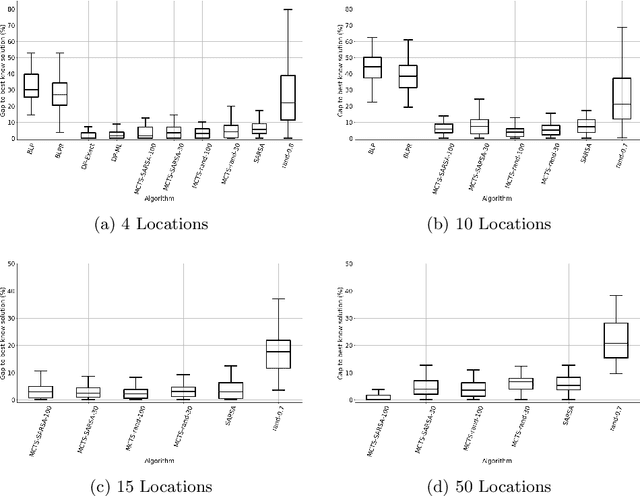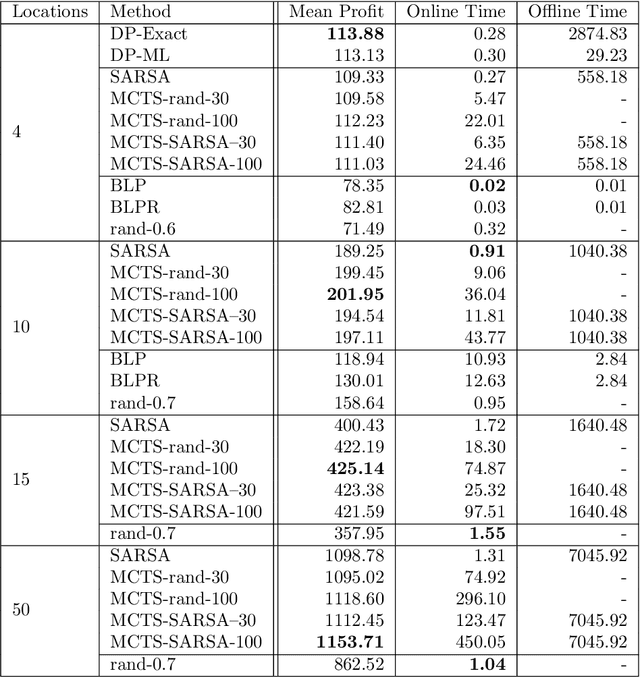Can Machine Learning Help in Solving Cargo Capacity Management Booking Control Problems?
Paper and Code
Jan 29, 2021



Revenue management is important for carriers (e.g., airlines and railroads). In this paper, we focus on cargo capacity management which has received less attention in the literature than its passenger counterpart. More precisely, we focus on the problem of controlling booking accept/reject decisions: Given a limited capacity, accept a booking request or reject it to reserve capacity for future bookings with potentially higher revenue. We formulate the problem as a finite-horizon stochastic dynamic program. The cost of fulfilling the accepted bookings, incurred at the end of the horizon, depends on the packing and routing of the cargo. This is a computationally challenging aspect as the latter are solutions to an operational decision-making problem, in our application a vehicle routing problem (VRP). Seeking a balance between online and offline computation, we propose to train a predictor of the solution costs to the VRPs using supervised learning. In turn, we use the predictions online in approximate dynamic programming and reinforcement learning algorithms to solve the booking control problem. We compare the results to an existing approach in the literature and show that we are able to obtain control policies that provide increased profit at a reduced evaluation time. This is achieved thanks to accurate approximation of the operational costs and negligible computing time in comparison to solving the VRPs.
 Add to Chrome
Add to Chrome Add to Firefox
Add to Firefox Add to Edge
Add to Edge